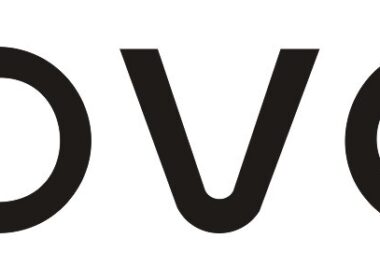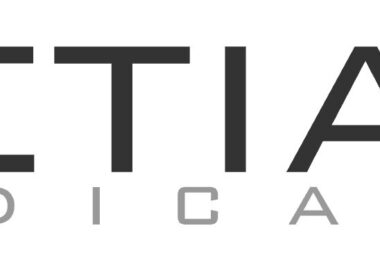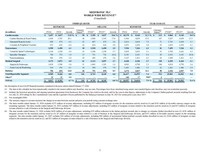Omada for Cholesterol closes a critical gap in cardiovascular care, delivering between-visit support for the many adults whose LDL remains uncontrolled under usual care¹SAN FRANCISCO, Feb. 19, 2026 (GLOBE NEWSWIRE) — Omada Health (Nasdaq: OMDA), the virtual-first, between-visit healthcare provider, today announced the expansion of its integrated platform to include dedicated cholesterol management alongside weight, glucose, blood pressure, and GLP-1 support. Up to 70% of adults with obesity have high cholesterol,1 yet among U.S. adults with atherosclerotic cardiovascular disease, only 41% ever reached a healthy LDL-C level (
Coronary/Structural Heart
NOVOS Core Clinical Trial Reveals Cardiovascular Benefits in Aging Adults
Placebo-controlled study demonstrates significant and sustained improvements in endothelial function, arterial flexibility, and systolic blood pressure in adults aged 40+ NEW YORK, Feb. 19, 2026 /PRNewswire/ — NOVOS, a longevity-focused biotechnology company developing science-backed…
Elsevier expands ClinicalKey AI with unrivaled full-text knowledge base and technology upgrades to help clinicians make decisions with confidence
ClinicalKey AI now includes full-text content from premium journals and medical organizations such as The Lancet, the New England Journal of Medicine (NEJM), the European Society For Medical Oncology and the American College of Cardiology, offering the broadest collection of trusted…
Retia Medical Receives FDA 510(k) Clearance for Argos Infinity™, Expanding Cardiovascular Intelligence Across High-Risk Surgical and Critical Care Environments
WHITE PLAINS, N.Y., Feb. 17, 2026 /PRNewswire/ — Retia Medical today announced that the U.S. Food and Drug Administration (FDA) has granted 510(k) clearance for Argos Infinity™, the company’s cardiovascular intelligence software platform designed for high-risk surgical and critical care…
Cytokinetics Announces European Commission Approval of MYQORZO® (aficamten) for the Treatment of Adults with Symptomatic Obstructive Hypertrophic Cardiomyopathy
European Commission Approval Based on Results of SEQUOIA-HCM First European Launch Expected in Germany in Q2 2026 SOUTH SAN FRANCISCO, Calif., Feb. 17, 2026 (GLOBE NEWSWIRE) — Cytokinetics, Incorporated (Nasdaq: CYTK) today announced that the European Commission (EC) has approved MYQORZO® (aficamten), 5 mg, 10 mg, 15 mg and 20 mg tablets for the treatment of symptomatic (New York Heart Association, NYHA, class II-III) obstructive hypertrophic cardiomyopathy (oHCM) in adult patients. MYQORZO is an allosteric and reversible inhibitor of cardiac myosin motor activity. In patients with oHCM, myosin inhibition with MYQORZO reduces cardiac contractility and consequently, left ventricular outflow tract (LVOT) obstruction. “The approval of MYQORZO in the European Union is an important milestone towards bringing this medicine to more patients living with obstructive HCM around the world,” said Robert I. Blum, Cytokinetics’ President and Chief Executive Officer. “We are pleased that the European label allows providers flexibility to determine whether a patient starts treatment at either 5 mg or 10 mg, based on the severity of their baseline LVOT obstruction. We look forward to making MYQORZO available in Europe, beginning with our first launch in Germany in the second quarter of this year.” “Myosin inhibition is establishing itself as an important therapy that may improve the lives of patients with hypertrophic obstructive cardiomyopathy. The approval of aficamten by the European Commission brings another treatment option into our clinical practice, allowing for more treatment flexibility to reach more patients,” said Prof. Benjamin Meder, FESC, Chair of Precision Digital Health, Head of the Institute for Cardiomyopathies Heidelberg and Deputy Medical Director, Department of Cardiology, Angiology and Pneumology, University Hospital Heidelberg. “Obstructive HCM can dramatically impact patients’ lives and often requires them to make difficult life choices based on their symptoms and how they feel,” said Emil Tsenov, Founding and Managing Director, HCM Patient Foundation. “The approval of MYQORZO in the European Union brings hope for patients and reflects meaningful progress for the HCM community.” The EC approval follows the positive opinion from the Committee for Medicinal Products for Human Use (CHMP) of the European Medicines Agency (EMA) recommending marketing authorization in the European Union (EU) for MYQORZO for the treatment of symptomatic (NYHA class II-III) oHCM in adult patients. MYQORZO was approved by the U.S. Food and Drug Administration (FDA) for the treatment of adults with symptomatic oHCM to improve functional capacity and symptoms, and by the China National Medical Products Administration (NMPA) for the treatment of adults with NYHA class II-III oHCM, to improve exercise capacity and symptoms. The Summary of Product Characteristics for MYQORZO is available on the EMA website at www.ema.europa.eu. About SEQUOIA-HCM The EC approval is based on the positive results from the pivotal Phase 3 clinical trial, SEQUOIA-HCM, published in the New England Journal of Medicine, which demonstrated robust efficacy, safety, and clinically meaningful benefits across symptoms, exercise capacity, hemodynamics, and biomarker endpoints. The results from SEQUOIA-HCM showed that treatment with MYQORZO for 24 weeks significantly improved exercise capacity compared to placebo, increasing peak oxygen uptake (pVO2) measured by cardiopulmonary exercise testing (CPET) by 1.76 mL/kg/min compared to baseline in patients treated with MYQORZO versus 0.0 mL/kg/min in patients treated with placebo (least square mean (LSM) difference [95% CI] of 1.74 mL/kg/min [1.04 – 2.44]; p=0.000002).1 The treatment effect of MYQORZO was consistent across all prespecified subgroups, including age, sex, patient baseline characteristics, and in patients receiving or not receiving background beta-blocker therapy. During the 24-week treatment period, 3.5% of patients in the treatment group experienced a reversible dose related reduction in left ventricular ejection fraction (LVEF) to
Medtronic reports strong third quarter fiscal 2026 results with highest enterprise revenue growth in 10 quarters
Cardiovascular portfolio up 11% year-over-year; Cardiac Ablation Solutions grew 80% on strength of pulsed field ablation portfolio GALWAY, Ireland, Feb. 17, 2026 /PRNewswire/ — Medtronic plc (NYSE: MDT), a global leader in healthcare technology, today announced financial results for its…
AMT Medical Appoints Geert van Gansewinkel as CEO to Lead Company into Next Growth Phase Revolutionizing Coronary Artery Bypass Surgery
Geert van Gansewinkel appointed as new CEO of AMT Medical
AMT Medical is a pioneering medical technology company developing a next-generation minimally invasive coronary bypass platform. Its ELANA® Heart Bypass System delivers a minimally invasive solution designed to replace traditional open-heart bypass surgery, ultimately leading to robot-assisted keyhole surgery compatible with surgical robots from industry leaders.
www.amt-medical.nlhttps://vimeo.com/636954313 Anticipated Clinical Results on Graft Durability and Minimally Invasive Applications to Shape Company’s Future EDE/UTRECHT, The Netherlands – February 17, 2026 – AMT Medical, a pioneering medical technology company developing a next-generation minimally invasive coronary bypass platform, today announced the appointment of Geert van Gansewinkel as Chief Executive Officer, effective immediately. The leadership transition positions the company for its next phase of development of its ELANA® Heart Bypass System, as AMT anticipates sharing significant clinical program updates in the near term that are expected to define its regulatory pathway and commercial trajectory. ELANA® delivers a minimally invasive solution designed to replace traditional open-heart bypass surgery, ultimately leading to robot-assisted keyhole surgery compatible with surgical robots from industry leaders. Founder and former CEO Rutger Tulleken will transition to the role of Founder & Strategic Advisor, where he will continue to support platform innovation, intellectual property development, grant funding initiatives, and collaboration with surgeons and research institutions, while ensuring a smooth leadership transition. Strategic timingThe appointment reflects strategic timing as the company approaches key inflection points. AMT expects to provide important updates on its clinical programs, including patency performance data (data showing the bypasses remain open) and progress in minimally invasive MIDCAB (keyhole bypass surgery) applications, that will inform the company’s transition from technology validation to structured regulatory advancement, clinical expansion, and operational scale-up. These anticipated milestones underscore the strategic rationale for bringing in experienced leadership at this juncture. Geert van Gansewinkel most recently served as Chief Executive Officer of GATT Technologies BV, a Dutch medical technology company focused on developing innovative polymer-based surgical sealant and adhesive solutions for tissue repair and hemostasis. He led the company through the complete development pathway, including preclinical validation, multiple clinical trials in Europe and the United States, and full regulatory approval processes. Under his leadership, GATT obtained CE marking in 2023 and FDA PMA approval in 2025, culminating in a successful acquisition by Johnson & Johnson in 2025. He managed the strategic transaction and subsequent integration into the acquiring organization. Earlier in his career, Geert held senior leadership roles at IQVIA and Polaris, where he co-led the exit to IQVIA. He also worked at The Boston Consulting Group, leading strategy, transformation, and post-merger integration initiatives across life sciences and healthcare. He holds a Master of Science degree in International Business Administration from Maastricht University and an MBA from IESE Business School in Barcelona. “Under Rutger’s leadership, AMT has transformed from a bold technological concept into a clinically advancing platform with strong strategic potential,” said Idgar van Kippersluis, Chairman of the Supervisory Board. “As we approach a critical inflection point and anticipate significant clinical milestones that will transition the company from technology validation to regulatory and commercial preparation, this is the optimal moment to bring in a leader with Geert’s proven track record. He has successfully navigated the complete journey from preclinical development through regulatory approval to strategic exit, and we are confident he brings the expertise required to guide AMT through this next phase.” “I am honored to join AMT at a pivotal moment as the company prepares to enter its next phase of development,” said Geert van Gansewinkel. “AMT’s technology platform has significant potential to address fundamental challenges in coronary surgery. My immediate priorities will be preparing the organization for expected clinical milestones, establishing a clear regulatory pathway, scaling our clinical operations and operational infrastructure, and ensuring we build sustainable long-term value.” Rutger Tulleken added: “The technology foundation we have built over the past years positions AMT to make meaningful contributions to coronary surgery. As we approach important clinical updates that will define our path forward, this is the natural time to transition day-to-day leadership to someone with Geert’s specific expertise in taking medical technology companies from clinical validation through regulatory approval and commercial success. I look forward to continuing to contribute to AMT’s innovation roadmap, IP strategy, and strategic partnerships in my advisory capacity.” The company expects to provide detailed updates on its clinical programs and regulatory pathway in the coming months as key milestones are achieved. About AMT MedicalAMT Medical is a medical technology company developing a next-generation coronary bypass platform designed to simplify and standardize coronary artery bypass grafting (CABG) procedures. While coronary bypass surgery remains one of the most durable and clinically proven treatments for coronary artery disease, conventional approaches typically require invasive sternotomy and technically demanding hand-sewn anastomoses. This can limit reproducibility and broader adoption of minimally invasive techniques. AMT’s ELANA® Heart Bypass System is a technology designed to enable a simpler, standardized anastomosis technique, supporting reproducible outcomes in both open beating-heart and minimally invasive MIDCAB (minimally invasive direct coronary artery bypass) procedures. By facilitating standardized minimally invasive workflows, the platform aims to support a broader transition from conventional sternotomy-based CABG toward reproducible, less-invasive coronary revascularization, including its potential role in the evolution toward minimally invasive, hybrid, and robotic coronary surgery workflows. Headquartered in Ede, with laboratories in Utrecht, The Netherlands, AMT Medical collaborates with leading cardiac surgeons in The Netherlands, Charité – Universitätsmedizin Berlin in Germany, and in the United States with UChicago Medicine and Mayo Clinic, with the shared goal of initiating first-in-human clinical applications. AMT Medical has raised over $40 million to date, including a $25 million Series B round in 2025 led by Bender Analytical Holding B.V. and supported by Invest-NL, the European Innovation Council, and Oost NL, along with multi-million-euro grants from RVO and the EIC Accelerator, to advance regulatory approvals and clinical development. For more information, visit AMT-Medical’s website, or find us on Linkedin. For further background info, please contact: AMT-Medical, Ede/Utrecht, the NetherlandsGeert van Gansewinkel, CEOEmail: info@amt-medical.nl LifeSpring Life Sciences Communication, Amsterdam, the NetherlandsLeon MelensPhone: +31 6 538 16 427Email: lmelens@lifespring.bio
Attachment
Geert van Gansewinkel appointed as new CEO of AMT Medical
Conavi Medical Highlights Peer-Reviewed Publication Demonstrating Advantages of Hybrid IVUS-OCT Imaging
– New Academic Data Supports Clinical and Commercial Value of Hybrid Imaging Platform-TORONTO, Feb. 13, 2026 (GLOBE NEWSWIRE) — Conavi Medical Corp. (“Conavi” or the “Company”), a leader in hybrid intravascular imaging technologies, today highlighted the publication of new peer-reviewed research titled “Deep learning-based plaque characterization in hybrid IVUS-OCT images is superior to single-modality deep learning analysis and human experts: head-to-head comparison against histology,” published in Cardiovascular Research by the European Society of Cardiology. The study analyzed IVUS-OCT images and matched histological sections from 10 cadaveric human hearts, demonstrating that a histology-trained hybrid IVUS-OCT deep-learning classifier outperformed single-modality IVUS, single-modality OCT, and expert readers in plaque characterization, supporting the clinical and commercial value of a comprehensive hybrid imaging for enhancing treatment planning. The publication includes contributions from Dr. Brian Courtney, a pioneer in hybrid IVUS-OCT imaging and co-inventor of the foundational hybrid imaging technology that underpins Conavi’s platform. Co-authors included imaging experts in Canada, Europe and the USA, as well as artificial intelligence researchers at Queen Mary University of London. “Peer-reviewed academic research continues to reinforce the clinical value proposition behind Conavi’s technology platform,” said Tom Looby, Chief Executive Officer of Conavi Medical. “As the field moves toward more precise, image-guided coronary interventions, research highlighting the complementary strengths of IVUS and OCT underscores the importance of comprehensive hybrid systems.” Conavi is advancing the development and commercialization of its next-generation hybrid IVUS-OCT imaging solutions and has submitted its next-generation Novasight imaging system to the U.S. Food and Drug Administration (FDA) for regulatory clearance, while continuing preparations to support commercialization and clinical adoption. For additional details, the publication can be accessed at:https://academic.oup.com/cardiovascres/advance-article-abstract/doi/10.1093/cvr/cvaf281/8443065 Stock Option Grant The Company also announced that it has granted stock options to Mark Quick, Chief Financial Officer on February 10, 2026. As part of its long‑term incentive program, the Company granted options to purchase a total of 1,000,000 common shares at an exercise price equal to the five-day volume‑weighted average trading price (“VWAP”) of the shares on the date of grant, being $0.41 per share. The options vest in accordance with the Company’s stock option plan and expire ten years from the date of grant. The grant of these options remains subject to all necessary regulatory approvals. About Conavi Medical Conavi Medical is focused on designing, manufacturing, and marketing imaging technologies to guide common minimally invasive cardiovascular procedures. Its patented Novasight Hybrid™ System is the first to combine intravascular ultrasound (IVUS) and optical coherence tomography (OCT) into a single device, enabling simultaneous and co-registered imaging of coronary arteries. The first-generation Novasight Hybrid™ System has 510(k) regulatory clearance in the U.S., Canada, China, and Japan. For more information, visit http://www.conavi.com. Notice on forward-looking statements:This press release includes forward-looking information or forward-looking statements within the meaning of applicable securities laws regarding Conavi and its business, which may include, but are not limited to, statements with respect to Conavi’s plans for the commercialization of its Novasight Hybrid™ System and the regulatory approval thereof, and the value proposition behind Conavi’s technology platform. All statements that are, or information which is, not historical facts, including without limitation, statements regarding future estimates, plans, programs, forecasts, projections, objectives, assumptions, expectations or beliefs of future performance, are “forward-looking information or statements”. Often but not always, forward-looking information or statements can be identified by the use of words such as “shall”, “intends”, “anticipate”, “believe”, “plan”, “expect”, “intend”, “estimate” “anticipate” or any variations (including negative variations) of such words and phrases, or state that certain actions, events or results “may”, “might”, “can”, “could”, “would” or “will” be taken, occur, lead to, result in, or, be achieved. Such statements are based on the current expectations and views of future events of the management of the Company. They are based on assumptions and subject to risks and uncertainties. Although management believes that the assumptions underlying these statements are reasonable, they may prove to be incorrect. The forward-looking events and circumstances discussed in this release, may not occur and could differ materially as a result of known and unknown risk factors and uncertainties affecting the Company, including, without limitation, those listed in the “Risk Factors” section of the amended and restated short form prospectus dated January 7, 2026 and the joint information circular of the Company dated August 30, 2024 (both of which are on the Company’s profile at www.sedarplus.ca). Although Conavi has attempted to identify important factors that could cause actual actions, events or results to differ materially from those described in forward-looking statements, there may be other factors that cause actions, events or results to differ from those anticipated, estimated or intended. Accordingly, readers should not place undue reliance on any forward-looking statements or information. No forward-looking statement can be guaranteed. Except as required by applicable securities laws, forward-looking statements speak only as of the date on which they are made and Conavi does not undertake any obligation to publicly update or revise any forward-looking statement, whether as a result of new information, future events, or otherwise. No regulatory authority has approved or disapproved the content of this press release. Neither the TSX Venture Exchange nor its Regulatory Services Provider (as that term is defined in the policies of the TSX Venture Exchange) accepts responsibility for the adequacy or accuracy of this press release. CONTACT:Chief Financial Officer: Mark Quick, 416-483-0100 Investors: Christina Cameron, 416-483-0100 ext.121, IR@conavi.com
Picard Medical/ SynCardia Highlights Successful Bridge-to-Transplant Case at UCSF Health Using the SynCardia Total Artificial Heart
– Successful heart transplant case following an implanted SynCardia total artificial heart reported at hospital with one of the largest heart transplant programs in the country -TUCSON, Ariz., Feb. 12, 2026 (GLOBE NEWSWIRE) — Picard Medical, Inc. (NYSE American: PMI) (“Picard” or the “Company”), parent company of SynCardia Systems LLC, maker of the world’s first total artificial heart approved by both the U.S. FDA and Health Canada, today announced that University of California, San Francisco (UCSF) Health has successfully performed its first heart transplant in a patient who had previously been supported with the SynCardia Total Artificial Heart, marking an important clinical milestone in the treatment of advanced biventricular heart failure. UCSF Health is the U.S. News & World Report 2025-2026 top-ranked hospital in California. UCSF announced in a press release yesterday that a 37-year-old patient from California’s Central Valley was admitted to UCSF in August 2025 with end-stage heart failure. Within weeks, surgeons implanted the SynCardia Total Artificial Heart (STAH) manufactured by Picard Medical Inc., through its wholly owned subsidiary SynCardia Systems LLC. It was the fifth patient that UCSF Health had implanted with a SynCardia Total Artificial Heart. The six-hour procedure took place at the Helen Diller Medical Center at Parnassus Heights. The patient was then discharged and three months later, the patient successfully underwent heart transplantation. The announcement stated that the patient continues to recover well and looks forward to returning home to care for his young daughter with renewed strength and health. The procedures were performed by cardiac surgeon Amy Fiedler, M.D., Surgical Director of the Heart Transplant and Mechanical Circulatory Support Program, and Jason W. Smith, M.D., Chief of Cardiac Surgery and Lung Transplantation. UCSF has one of the largest heart transplant programs in the country and, in Northern CA, has the only active program that fully implants the mechanical heart. Patrick NJ Schnegelsberg, Chief Executive Officer of Picard Medical Inc., commented, “This fifth case at UCSF highlights the continued clinical adoption of the SynCardia Total Artificial Heart at leading transplant centers and now has a corresponding successful heart transplantation. For patients in advanced biventricular failure, time is critical. The ability to stabilize and sustain these patients, so that they are also healthy enough for surgery until a suitable donor heart becomes available is central to our mission.” Picard Medical Inc is also advancing development of the Emperor TAH, a fully implantable next generation device designed to expand access to long-term mechanical circulatory support without the need for external pneumatic drivers. About UCSF Health UCSF Health is recognized worldwide for its innovative patient care, reflecting the latest medical knowledge, advanced technologies and pioneering research. It includes the flagship UCSF Medical Center, which is among the nation’s top specialty hospitals, as well as UCSF Benioff Children Hospitals with campuses in San Francisco and Oakland; two community hospitals, UCSF Health Stanyan Hospital and UCSF Health Hyde Hospital; Langley Porter Psychiatric Hospital; UCSF Benioff Children Physicians; and the UCSF Faculty Practice. UCSF Health UCSF Medical Center ranks among the country’s top specialty hospitals for adult care, according to U.S. News and World Report, and is best in the San Francisco Metro Area in Cardiology, Heart and Vascular Surgery. UCSF Health excels in numerous complex cardiology procedures and conditions and received the highest rating, High Performing, for aortic valve surgery, as well as specialty care for heart arrhythmias, heart attacks, heart failure, and pacemaker implantation. These hospitals serve as the academic medical center of the University of California, San Francisco, which is world renowned for its graduate level health sciences education and biomedical research. UCSF Health maintains affiliations with hospitals and health organizations throughout the Bay Area. For more information, visit https://ucsfhealth.org. About Picard Medical and SynCardia Picard Medical, Inc. is the parent company of SynCardia Systems, LLC (“SynCardia”), the Tucson, Arizona–based leader with the only commercially available total artificial heart technology for patients with end-stage heart failure. SynCardia develops, manufactures, and commercializes the SynCardia Total Artificial Heart (“STAH”), an implantable system that assumes the full functions of a failing or failed human heart. It is the first artificial heart approved by both the FDA and Health Canada, and it remains the only commercially available artificial heart in the United States and Canada. With more than 2,100 implants performed at hospitals across 27 countries, the SynCardia Total Artificial Heart is the most widely used and extensively studied artificial heart in the world. For additional information about Picard Medical, please visit www.picardmedical.com or review the Company’s filings with the U.S. Securities and Exchange Commission at www.sec.gov. Contact: InvestorsEric RibnerManaging DirectorLifeSci Advisors LLCeric@lifesciadvisors.com Picard Medical, Inc./SynCardia Systems, LLCIR@picardmedical.com General/MediaBrittany Lanzablanza@syncardia.com
Heartflow Expands GAMEFILM Registry to NBA and NHL Alumni, Precisely Measuring Heart Disease Risk in Former Professional Athletes
NBA legend Muggsy Bogues joins effort to detect and manage coronary artery disease in retired players using AI-powered Heartflow AnalysisMOUNTAIN VIEW, Calif., Feb. 12, 2026 (GLOBE NEWSWIRE) — Heartflow, Inc. (Heartflow) (Nasdaq: HTFL), the leader in AI technology for coronary artery disease (CAD), today announced a significant expansion of its groundbreaking GAMEFILM Registry. Building on a successful initial phase enrolling retired National Football League (NFL) athletes, the study will now extend to include former players from the National Basketball Association (NBA) and the National Hockey League (NHL), broadening Heartflow’s initiative to protect the heart health of professional athletes across major sports. Retired NBA star Muggsy Bogues was one of the first former professional basketball players to join the GAMEFILM Registry and receive a CAD assessment with Heartflow’s AI-driven technology. “My 14-year career as a professional athlete taught me the importance of staying on top of your health, especially heart health. I joined Heartflow’s GAMEFILM Registry as soon as I heard about it because I’ve lost too many friends to cardiovascular disease,” said former NBA point guard Muggsy Bogues. “Many of us push our bodies to the limits, and sometimes the signs of underlying issues can be overlooked. Heartflow Analysis offers an easy way to get a precise picture of what’s going on inside, without invasive procedures. I’m excited to see this technology benefit more athletes, giving them and their doctors a powerful tool for proactive heart care.” Heart disease is the leading cause of death in the United States and worldwide. It is known as the “silent killer” because it can progress for years without obvious signs or symptoms. For professional athletes who place immense, continuous demands on their cardiovascular systems, underlying heart issues can be easily masked. Heartflow Plaque Analysis provides a thorough understanding of coronary plaque burden, which is essential for physicians to identify high-risk patients early and enable timely, preventative interventions. Four out of five heart attacks and strokes are preventable with lifestyle and nutrition changes if patients at high risk are identified early.1 The GAMEFILM Registry has already enrolled over 140 retired athletes from the NFL, NBA, and NHL. The study, currently active at 15 sites across the United States, aims to enroll up to 300 former players to better understand the prevalence, risk factors, severity, and treatment protocols for cardiovascular disease in this population. To do so, the registry addresses how advanced coronary computed tomography angiography (CCTA) imaging and AI-powered insights from Heartflow’s first-of-its-kind non-invasive technology can identify different types of plaque in the coronary arteries — including those most likely to cause a cardiac event — and measure the effect on blood flow to the heart.2 “Expanding our GAMEFILM Registry to include NBA and NHL athletes marks a pivotal moment for Heartflow, demonstrating our mission to revolutionize how heart disease is diagnosed, measured and managed,” said John Farquhar, President and CEO of Heartflow, and an NFL alumnus. “Heartflow’s precision diagnostic capability will not only advance the health and safety of these athletes, but also generate invaluable insights that will benefit cardiovascular care more broadly.” The expansion of the GAMEFILM registry will deepen understanding of how high-performance sports impact heart health over time. This data is expected to contribute significantly to the development of tailored screening protocols, preventative strategies, and personalized treatment plans. “Cardiovascular disease in former professional athletes is a paramount concern, but there’s much we still don’t understand about the disease in this population,” said Jeffrey L. Boone, M.D., GAMEFILM Registry Primary Investigator and Founder and Medical Director of the Boone Heart Institute. “We’ve seen the invaluable insights gained from our work with NFL alumni, identifying risks and guiding interventions. Bringing this same proactive, precision cardiovascular care to basketball and hockey players, who are also at unique risk due to the physical intensity of their sports, is a vital step in ensuring their long-term health.” Heartflow is actively collaborating with organizations supporting former professional athletes to facilitate enrollment and to integrate the GAMEFILM Registry’s insights into existing health and wellness programs. This initiative underscores Heartflow’s dedication to managing heart disease through partnering with physicians to generate robust, high-quality clinical evidence. To learn more and enroll in the GAMEFILM Registry, visit heartflow.com/GAMEFILM. About Heartflow’s Technology and ResearchHeartflow’s technology is redefining precision cardiovascular care through clinically-proven AI and the world’s largest coronary imaging dataset. Heartflow has been adopted by more than 1,400 institutions globally and continues to strengthen its commercial presence to make this cutting-edge solution more widely available to an increasingly diverse patient population. Backed by ACC/AHA guidelines and supported by more than 600 peer-reviewed publications, Heartflow has redefined how clinicians manage care for over 500,000 patients worldwide.3 Key benefits include: Proprietary data pipeline: Built from more than 160 million annotated CTA images, Heartflow’s data foundation powers advanced AI models that deliver highly accurate, reproducible insights across diverse patient populations.Extensive clinical and real-world validation: Heartflow’s AI-driven solutions have been validated through clinical evidence in over 200 studies assessing over 365,000 patients. Proven in real-world practice with reproducibility and accuracy, Heartflow’s coronary CTA image acceptance rates exceed 97%.Seamless clinical integration via upgraded workflow: Heartflow delivers final quality-reviewed analyses instantly upon order, enabling clinicians to move from diagnosis to decision without delay.Quality system, global security and patient-data integrity compliance: Heartflow meets or exceeds leading international standards, including HITRUST, SOC 2 Type 2, ISO 13485, and ISO 27001. About Heartflow, Inc.Heartflow is transforming coronary artery disease from the world’s leading cause of death into a condition that can be detected early, diagnosed accurately, and managed for life. The Heartflow One platform uses AI to turn coronary CTA images into personalized 3D models of the heart, providing clinically meaningful, actionable insights into plaque location, volume, and composition and its effect on blood flow — all without invasive procedures. Discover how we’re shaping the future of cardiovascular care at heartflow.com. Media ContactElliot Levyelevy@heartflow.com Investor ContactNick Laudiconlaudico@heartflow.com 1 World Heart Federation. Prevention. https://world-heart-federation.org/what-we-do/prevention/ Accessed Feb. 10, 2026.2 Williams, Michelle C., et al. “Low-Attenuation SCOT-HEART Trial.” pp. 1452–1462, https://doi.org/10.1161/CIRCULATIONAHA.119.044720.3 Gulati, et al. 2021 AHA/ACC/ASE/CHEST/SAEM/SCCT/SCMR Guideline for the Evaluation & Diagnosis of Chest Pain. J Am Coll Cardiol.













